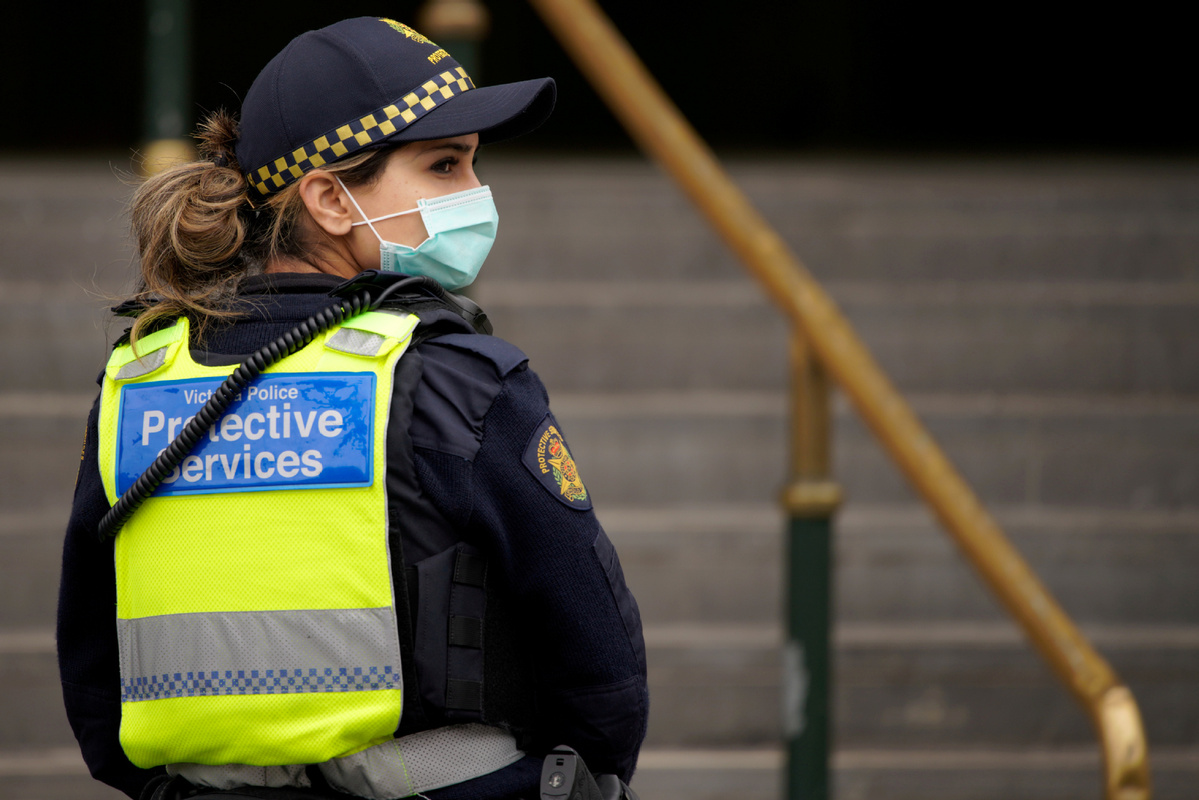Evidence on role of masks universally accepted
By Karl Wilson | China Daily Global | Updated: 2020-07-27 09:12

Should the wearing of face masks be made compulsory during the COVID-19 pandemic? The question has been bitterly debated since the novel coronavirus first raised its ugly head at the end of last year.
But scientists and the medical profession agree that the answer is "yes".
In China, the decision to wear masks is a simple health issue. In many other countries, however, the debate about wearing masks has become a political rather than a public health issue. Having said that, some of the world's most vocal critics of masks are starting to change their tune.
United States President Donald Trump is now encouraging people to wear masks to avoid spreading COVID-19. Trump even went as far as tweeting that the wearing of masks is "patriotic".
So why the sudden change of heart? Could it be because the US now leads the world in the number of cases (more than 4 million) and the highest number of deaths, at more than 146,000?
In the southern Australian state of Victoria, the wearing of masks became compulsory last week.
Around 5 million people living in suburban Melbourne, the state capital, are required to wear masks outside their homes or face a fine of A$200($143).
The medical profession has argued for months that while wearing masks will not stop the pandemic, it will reduce the number of infections dramatically.
Locking down an entire city, or country for that matter, will not kill the virus-it will only halt its spread as many people carry it without even knowing they do. The wearing of masks will cut down the spread.
As Victorian Premier Daniel Andrews pointed out on July 19: "There's no vaccine to this wildly infectious virus. … Masks are a simple thing, but it's about changing habits, it's about becoming a simple part of your routine."
Australia has been luckier than most countries, having recorded around 14,000 cases of COVID-19 and a low rate of deaths.
Ever since the pandemic started, public health officials around the world have been saying that wearing masks has the potential to control the spread of infections.
Research has shown the COVID-19 virus is being carried and transmitted via very small particles, which can remain in the atmosphere or be pushed farther with air currents and probably air-conditioning systems.
The wearing of masks is not only recommended for infected people to stop the spread of the virus, but also to prevent healthy people from getting infected through inhaling the particles that carry the virus.
One of the problems with getting this message across to the public has been the inability of many governments to clearly articulate the issue.
In Australia's case, if the wearing of masks in public spaces had been made compulsory at the very start of the pandemic, the economic costs caused by lockdowns and impact on the social and public health systems could have been a lot less.
Australia has been lucky. It has not endured the full force of the pandemic as in Europe, the US and South America.
The virus will not go away until a vaccine is found. And even when a vaccine is found, we should not become complacent, as there will be other viruses just as deadly if not deadlier than COVID-19.
Our public health systems need to instill the idea in people that the wearing of masks is a social responsibility. Not only that, they need to be taught how to wear masks.
The World Health Organization released updated guidelines on June 5 acknowledging that masks can reduce transmission when physical distancing cannot be maintained or in places of high prevalence.
The evidence on masks is now universally accepted. We know that if worn in the community, they protect others from getting infected if the person wearing one is ill. And they also reduce the risk of being infected by another person if you wear one and are not ill.
The point is that wearing masks will reduce the likelihood of the virus being spread.
While some may argue against making it compulsory to wear masks, it is important to understand that anything we do to prevent transmission of the virus is useful, and a mask is another barrier to infection.
The author is a China Daily correspondent based in Sydney.
























